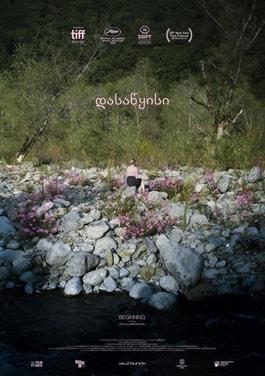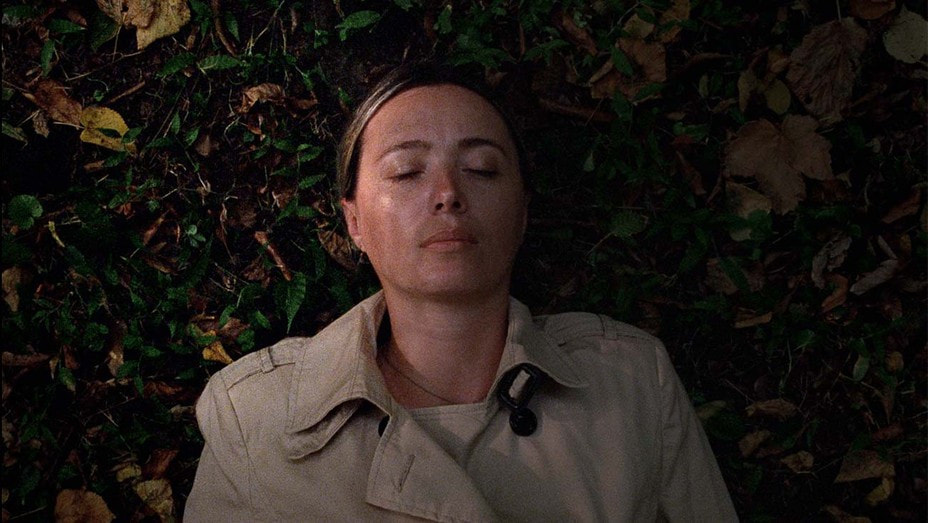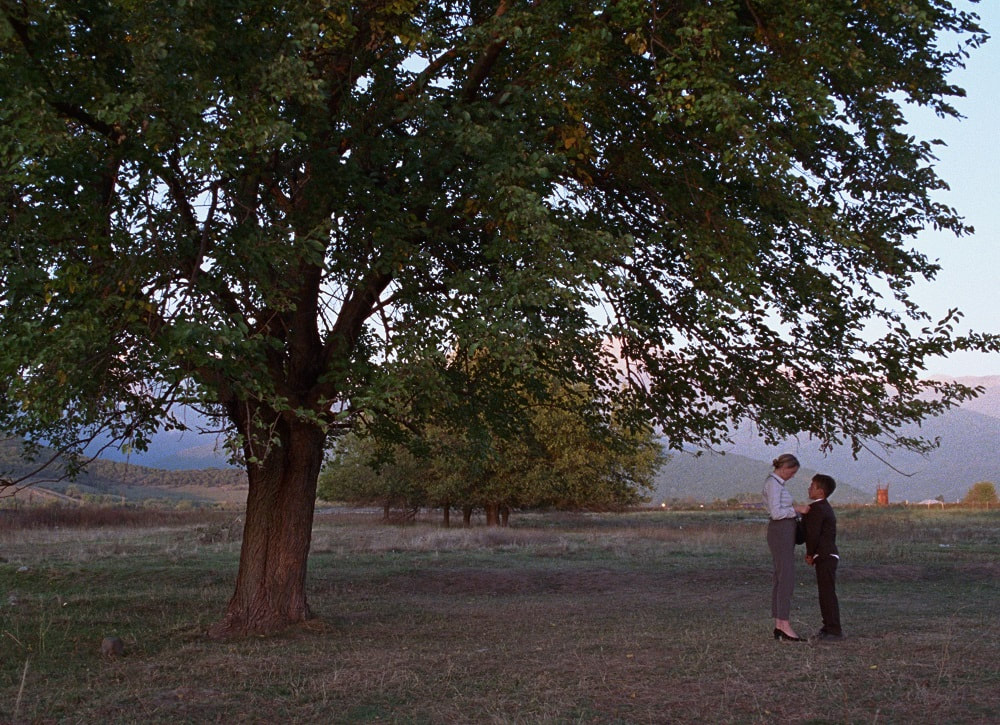Yana (Ia Sikhitashvili) is the wife of a Jehovah’s Witness leader at a crisis point in her life. When their remote prayer hall is firebombed in a jaw dropping opening scene, husband David (Rati Oneli who also co-wrote the film) leaves to meet with religious elders. Left on her own with their son Giorgi (Saba Gogichaishvili), isolated Yana experiences a quiet and gnawing internal crisis of identity, motherhood and submission, punctuated by scenes of fear and violence. At the start of the film Yana is a typical ‘good wife’, helping to organise the prayer meeting, teaching and disciplining the children in the congregation like a mother hen, and being subservient to her husband. Her position is as we might expect of the obedient wife of a religious leader. Very quickly this persona is broken open and we start to probe what’s actually on the inside. We discover intimate sexuality and fear when she is visited by an aggressive detective (Kakha Kintsurashvili) who pushes boundaries to levels that make us wince. It’s sharply uncomfortable and unsettling, especially when coupled with the fixed-camera style. Kulumbegashvili uses static cameras and very long takes throughout the whole film. The camera only ever moves a couple of times in slow pans. We’re not told how to experience the scenes or what to focus on, the fixed camera makes us do that work for ourselves. During single takes that stretch on for minutes our eyes start to wander and interrogate the entire frame. This lets us pick up on subtleties and start reading our own meaning into what we see. It’s a style akin to that of Joanna Hogg’s character-driven domestic dramas. But it mainly brings to mind Chantal Ackerman’s 1975 3 hour 21 minute epic “Jeanne Dielman, 23 quai du Commerce, 1080 Bruxelles”. Both “Beginning” and “Jeanne” use very long takes and static cameras to show women in their domestic environment, bound to conform to expectations placed on them, yet internally unfulfilled and desolate. With the camera’s eye unblinking and unmoving, we are forced to take in the entire scene with its unspoken horror, isolation or even violence. We can’t look away because these women can’t. Of course this only works with excellent cinematography which, in “Beginning”, was done by Arseni Khachaturan. Every shot is framed and lit with such precision they are works of art in their own right. This partnership gives the viewer a painting of domestic life we just can’t look away from. To add to the hypnotic intensity of the long takes we are given little to any music. We sit in discomforting and raw near-silence. Yana’s emotions and actions are presented as though naked with no suggestion of how to interpret them. It also reflects Yana’s isolation both in her marginalised community and in her own home. The shell of a persona which was put upon Yana falls away and her inner self emerges. She allows herself to explore a darker side of her psyche, playing at death and nature, and allowing herself to break down. Her motherly nature now seems more of a role she had to play than one she necessarily enjoys. One scene of Yana helping her son Giorgi in the bath has some parallels with an earlier act of shocking violence which is subtle enough to make us feel quietly uncomfortable despite its tender nature. By the end of the film we’re not left with many answers so we end up sitting in the stillness of the credits wondering what will become of her. Is she unhinged from suffering years of subservience? And if she was would that be excusable? Is it understandable? What would become of each of us if unencumbered by expectations or duties and the weight of life was finally lifted? “Beginning” is hard to watch both because of the content and the stylistic choices. With her unwavering conviction to a very specific filmic style and a willingness to make the viewer do their fair share of the work, Déa Kulumbegashvili has a strength of direction which makes her one to watch. Comments are closed.
|
AuthorHi, I'm Caz. I live in Edinburgh and I watch a lot of films. My reviews focus mainly on women in film - female directors or how women are represented on screen. Archives
December 2021
Categories
All
|





 RSS Feed
RSS Feed
